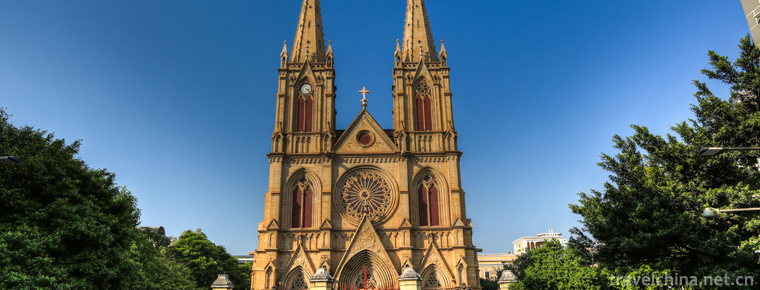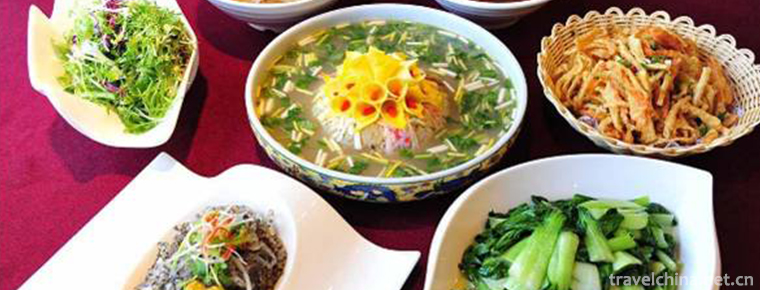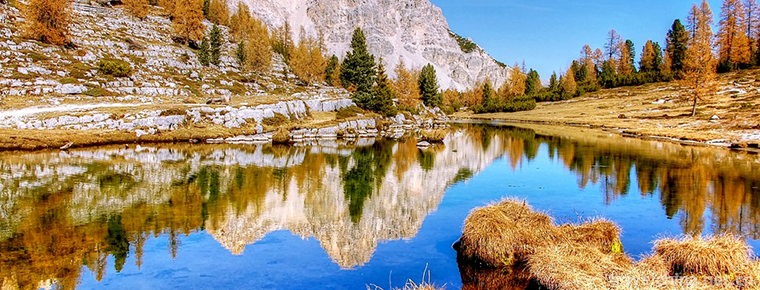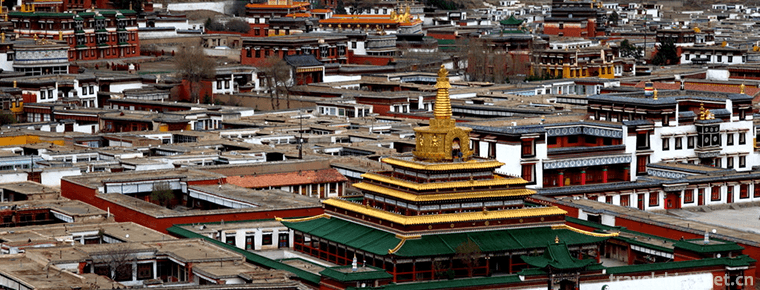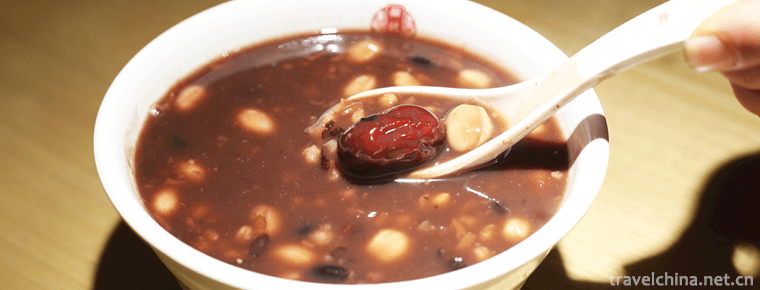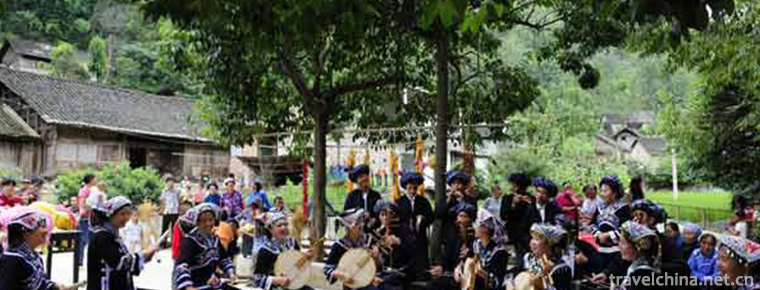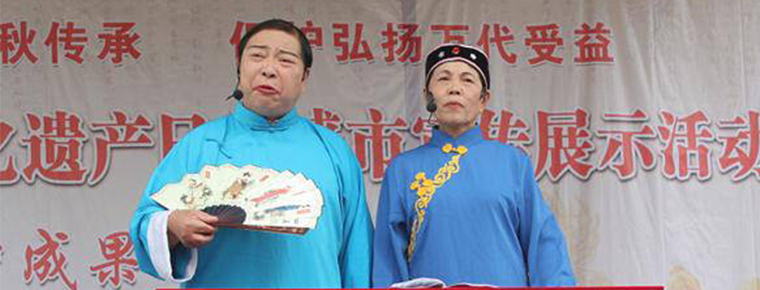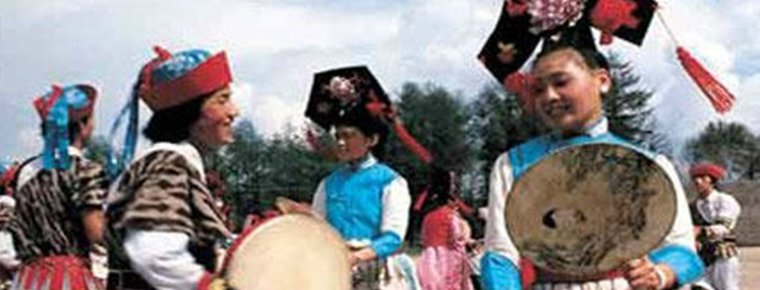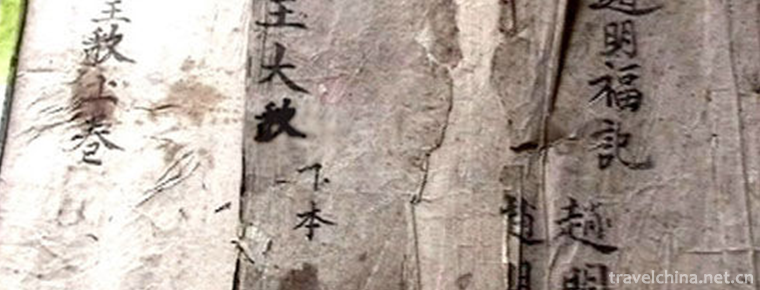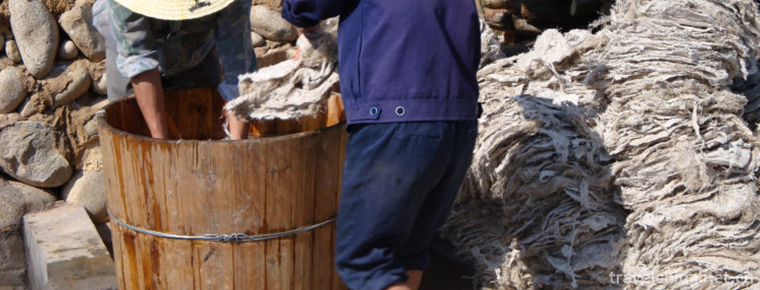Dai nationality Zhang ha
Dai nationality Zhang ha
Dai Zhangha, also known as "Zanha", is a traditional form of Dai folk song, which is spread in Xishuangbanna Dai Autonomous Prefecture in the southern border of Yunnan Province and Dai villages in Jiangcheng, Menglian and Jinggu of Puer City. It is also sung among the Bulang people living next to the Dai people. Zhang Ha is not only a singer's title, but also a kind of music name as a form of musical performance. In Xishuangbanna, Dai people always invite Zhang Ha singers to perform in major folk activities, such as celebrating New houses, promoting monks, Buddha, marriage, harvest celebration, full moon of children, festivals, etc. Of course, occasionally during the work break, you can also hear the beautiful songs of Zhang Ha singer. The content of singing is mostly historical stories or singing labor, life, love and so on. Some are blessings, some are compliments, some are narrative, the tune has a recitation style.
On May 20, 2006, the Dai Zhangha declared by Xishuangbanna Dai Autonomous Prefecture of Yunnan Province was listed in the first batch of national intangible cultural heritage list with the approval of the State Council.
historical origin
At present, the formation age of Dai Zhangha can not be accurately determined. We can only make a general judgment and analysis from the Dai ancient books and folklore about the origin of Zhangha.
According to the Dai literary work "Wa Lei Ma Yo Gan Ha Dai" (On Dai Poetry), the ancestors of the Dai nationality moved from eating chestnuts and fruits to eating muntjac and wapiti meat. "When they were picking chestnuts and fruits on the hands and feet, they would often fall from trees with stabs on their feet or roll down from cliffs to death. When they suffered such setbacks and misfortunes, they would send them out. Groaning, whining and crying;... When a tiger or a wapiti is killed, everyone is happy, laughing, jumping and jumping, and constantly shouting, "What a great deal, enough for us to eat and chirp! Chirp! Chirp! "For a long time,
This kind of sad or happy mood naturally becomes people's oral communication and gradually evolves into songs. "This period is the era of sporadic songs." "No rhyme, no rhythm, pure joy is singing, satisfaction is singing, the tone is like a bird pecking wood, like a stone rolling slope, like a fruit on a wild vine. "This is basically the same as that of the Dai people," where there are Dai people, there are Dai songs, and where there are Dai songs, there are Zhang Ha. However, the "Zhang Ha" in this period is obviously different from the semi-professional Zhang Ha formed by the social division of labor.
When the mobile life of collecting and hunting of the Dai ancestors gradually turned to the period of settled cultivation, the legends of dripping water or songs and Zhang Ha and Galando birds showed that the generation of Zhang Ha was closely related to production, labor and living environment.
There are many opinions about the exact time when Zhang Ha came into being. Dai folklore "Two thousand and five hundred years ago, a man named'Mahaga killed Jana to listen'wove Buddhist sutras into lyrics. It is also said that Payarawu came to Xishuangbanna to hunt. Once he beat a golden wapiti, and he shared the venison with everyone. So, everyone was very happy and encouraged, and what danced well became Zhang Fan's good singing became Zhang Ha's.
According to the legends of the Dai people and other relevant materials, Zhangha of the Dai people was born between the 6th and 8th centuries A.D. The first stage is that after Dai people entered class society, Zhang Ha was bred and cultivated among the masses because of the results of social division of labor and the needs of the masses. The second stage was at the beginning of the 15th century, before Dai people generally believed in Southern Upper Buddhism, the Dai people had formed the Zhangha custom. After the first half of the 15th century, the third stage changed from the folk custom of Zhang Ha to the semi-professional singer. In the fourth stage, after the middle of the 15th century, the local regime combined with theocracy, Dai people believed in the Southern Upper Buddhism, folk singers were brought into the jurisdiction of the laws and regulations of the lords, and Zhang Ha became a part of the social system. The fifth stage is after the 1950s, Zhang Ha and other laborers turned over and liberated, became masters of the new era and singers.

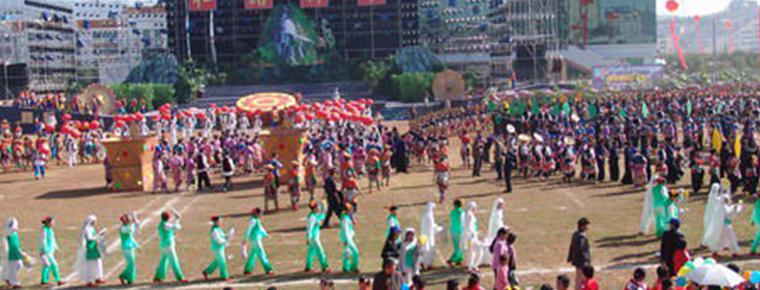
Dai nationality Zhang ha
-
Shishi Sacred Heart Cathedral
Guangzhou Shishi Sacred Heart Cathedral is located in Yide Road
Views: 177 Time 2018-10-12 -
shui xi of Luo Yang
shui xi of Luo Yang/Luoyang Water Banquet is a traditional feast with characteristics in Luoyang, Henan Province, which belongs to the Henan Cuisine Department.
Views: 257 Time 2018-11-26 -
Inner Mongolia Autonomous Region Alshan Chaihe Tourist Scenic Area
Inner Mongolia Autonomous Region Alshan Chaihe Tourist Scenic Area/Chaihe Tourist Scenic Spot has a total area of 1368.7 square kilometers
Views: 195 Time 2018-12-02 -
La blun Temple
Labrang Temple is one of the six main monasteries of the Gelug Sect of Tibetan Buddhism. In 1982, Labrang Temple was listed as one of the key cultural relics protection units in China
Views: 180 Time 2019-01-29 -
Zhangye National Wetland Park
Zhangye National Wetland Park is located in the northern suburbs of Ganzhou District, Zhangye City, which is closely linked with the urban area. Wetland area of 62,000 mu, the main body is located in
Views: 186 Time 2019-03-16 -
Babao black rice porridge
Babao black rice porridge is a traditional snack and a food for Laba Festival. Purple and black, soft and waxy, sweet and fragrant. Developed from Babao glutinous rice porridge, it has the function of
Views: 206 Time 2019-03-25 -
Buyi Eight tone Sitting Singing
Buyi eight-tone sitting-singing, also known as "Buyi eight-tone", is a form of folk music and singing handed down from generation to generation by the Buyi people
Views: 139 Time 2019-04-04 -
Hanchuan good books
Hanchuan Shanshu is a kind of traditional folk music which combines rap and singing in Hubei Province. Since the Qianlong period of the Qing Dynasty, it has a history of 260 years.
Views: 144 Time 2019-05-02 -
Manchu speaking Department
Manchu Folk Talk Department refers to a long prose narrative literature created and preached by Manchu folk artists, which aims to reflect the war life and emotional world of the Manchu people in hist
Views: 151 Time 2019-05-19 -
Panwang Song
Panwang Song is a collection of Yao folk poetry. Mainly spread in the residential areas of the Yao nationality in Nanling Mountains, Jianghua is a folk literature with distinct national characteristic
Views: 142 Time 2019-06-08 -
Making Techniques of Lianshi Paper in Lead Mountain
Lead Mountain Lianshi Paper Making Skills, local traditional handicraft in Jiangxi Province, one of the national intangible cultural heritage.
Views: 213 Time 2019-06-10 -
Neijiang social security
In 2019, there were 109600 people participating in the endowment insurance (including retirees) of government institutions, 842500 people of enterprise employees (including retirees), and 1501700 people of urban and rural residents. 52100 new urban jobs
Views: 363 Time 2020-12-16
